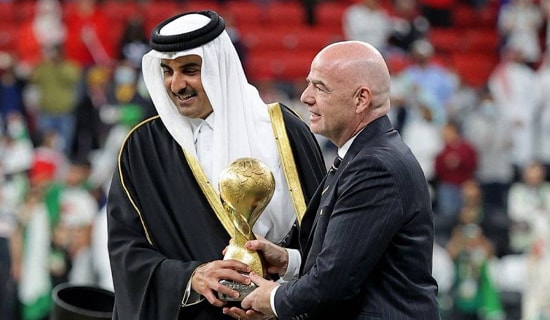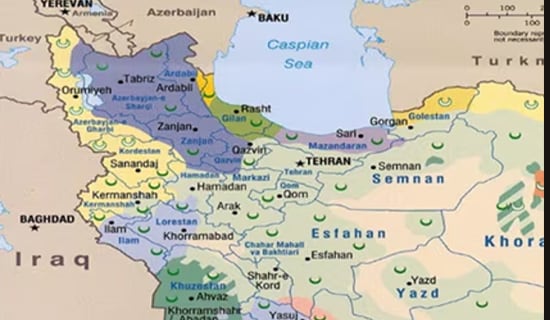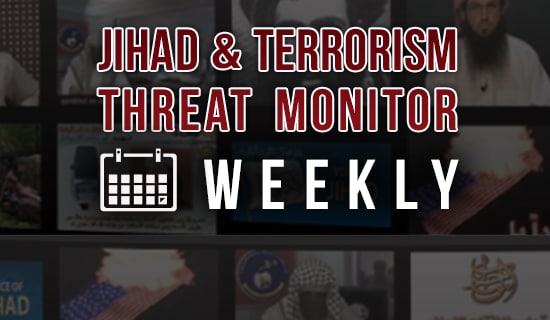In a recent sweep, Saudi authorities arrested the members of seven terrorist cells that were operating within the country. The cells were receiving assistance from elements outside the country to establish training bases abroad, with the aim of carrying out attacks in Saudi Arabia.[i]
After the arrests, senior Saudi officials and columnists expressed criticism of the lapses and failures in the authorities' handling of the problem of domestic terrorism and extremism, and made recommendations for improvement.
The following are excerpts of the reactions from Saudi officials and the Saudi Press.
Saudi Interior Minister Prince Naif bin Abd Al-'Aziz: Dealing With Terrorism is Weak on the Ideological Level
Saudi Interior Minister Prince Naif bin Abd Al-'Aziz criticized the authorities' lax handling of extremism in Saudi Arabia on the ideological level. In an interview, he told the London daily Al-Hayat that he was "dissatisfied with the level of activity in the ideological, social, scientific, educational, and media [areas], in dealing with the intentions of the misguided group, and in exposing its plans, which are aimed at causing civil war and destroying the country and its national resources." He said that the ideology behind the country's handling of the problem of terrorism was still "weak," and "not comparable to the efforts on the security level."[ii]
Similar criticism was voiced by columnist Mamdouh Al-Muhaini, in a column posted on the Al-Arabiyya TV website: "The Saudi Interior Ministry's recent announcement of the exposure of seven cells that planned to carry out extensive violent operations exposed another aspect of the lax handling of extremism and terrorism on the ideological level. From the outset, it was clear that the perception underlying the program for fighting terrorism and extremism was flawed, that [the program's] steps were confused, and that it was operating without goals.
"One of the biggest mistakes that reflects the [program's] wrongheaded approach was the distancing of children and the adolescents from the circle of this ideological war [on terror]. From the outset, the assumption was that [fighting] terrorism and extremism was [only] a matter of distancing the adults, and that adolescents and little ones would not [have to] be involved... [It was assumed that] the important thing was to distance the adults [from extremism]... so that their views would not be passed on to the adolescents. However, unfortunately, any serious attempt to protect the children and adolescents from adopting ideas that would urge them towards extremism and terrorism has not [only] failed, but is [completely] nonexistent..."[iii]
The Utter Failure of the Counseling Committees
Other columnists criticized the counseling committees that work in the prisons under the aegis of the Saudi Interior Ministry, with the aim of reeducating security detainees and having them renounce their extremist views.[iv] Columnist Khaled Al-Ghannami wrote in the Saudi daily Al-Watan: "...Since the appearance of the counseling committees, they have [tried] to market to us their paper victories one after another. [The committees] reported that the terrorism problem has been 80% eliminated, and I don't know where they get this statistic from. [They have also] reported that the misguided young people [whom they counsel in the prisons] have recanted and abandoned their [the extremist views]. However, we are seeing some of them return to and rejoin the path of death, shortly after their release [from prison].
"The counseling committees... have indeed failed utterly at the task with which they were charged. They have not fulfilled their duty to extricate the young people from the claws of terrorism, and have not succeeded in refuting the terrorists' claims and eliminating these [claims] completely. If they had, we would not be seeing new volunteers from among the young people running after the ba'ya [oath of allegiance] preachers [v],and [following] those who pretend to be the Mahdi [i.e. Messiah], and all those demented people wandering the length and breadth of our Islamic world, from Morocco to Yemen. Some of them have [even] infiltrated the Ka'ba' compound in order to entice reckless and fervent young people... with talk about the approaching end of the world, the necessity of jihad... [and] takfir...
"The discourse on suicide and on abandoning the cares of day-to-day life for Paradise and beautiful girls is very tempting for young people – in contrast to what is presented to them by members of the counseling committees, who give them nothing meaningful."[vi]
In a similar vein, columnist Muhammad Al-'Athim wrote, also in Al-Watan: "...The counseling [committees] and the call to examine the Al-Sakinah [campaign] are not helping the problem of the spreading breeding grounds [of extremism].[vii] Their openings must be blocked and their caves must be exposed.
"It is strange that, although some of these breeding grounds can be clearly seen, we are forbidden to speak of them openly, because they are connected with good preaching for belief in Islam and with the righteous believers who are in charge of that preaching, such as charity associations... the associations for memorization of the Koran... meeting places for the pupils of the clerics, and the supreme preachers who are known in society... who have no connection to this [misguided] group [i.e. extremists]. All these are places for [doing] good in the Saudi Islamic tradition. However, there are those who use them to hide, [to obtain] funding [for terrorism], and to work in abhorrent secrecy against the residents and the homeland."[viii]
"The Biggest Lie that Has Spread [in Saudi Arabia] is that the Ideology of Takfir and Terrorism Come From Outside [the Country]"
Shura Council member and Justice Ministry legal advisor Sheikh Abd Al-Muhsin Al-'Obikan stated that the sources of terrorism must be eliminated. He said, "Those who think that terrorism is only attacks are wrong, as terrorism has sources, [and those sources] are takfir and extremism. Extremists are abundant... and among us there are quite a few extremists who practice takfir [as well]. Likewise, books calling for terrorism and takfir are [openly] for sale in Saudi Arabia. Even if they do not explicitly instruct [the reader] to carry out terrorist acts, they call to it by takfir and by extremism." [ix]
Columnist Abdallah Al-Mutairi wrote in Al-Watan that the reasons for domestic Saudi terrorism emanated from problems within the country: "The biggest lie that has spread [in Saudi Arabia] is that the ideology of takfir and terrorism come from outside [the country]. As long as we reiterate such statements, we will remain [like] someone who carries a scorpion in his pocket and does not acknowledge that it is there... The first step in handling this war [against extremism] is acknowledging that the scorpion is among us, both the [scorpion itself] and its venom... We must acknowledge that we are also part of the mistake. The terrorism is from within – both the individuals [who carry it out] and the [extremist] ideology [that feeds it]..."
Al-Mutairi continued, "In the context of the events at the Al-Yamama college, I saw many young people who were clearly ready to become the next cadre of terrorism and to do anything to please their leaders. [x]These young people were not the product of mujahideen camps in Afghanistan or Chechnya, but a home-grown product – [a product] of the era in which terrorism has struck Saudi Arabia in several places."[xi]
There is Urgent Need for Reform in the Saudi Education System and Religious Institutions
Some columnists called for reform in the education system and religious institutions, which, they said, are fostering extremism. Columnist Abdallah bin Bajad Al-'Utaibi wrote in the Saudi daily Al-Riyadh: "In our society there is [a type of] discourse that generates hatred wherever it is found... There are schoolteachers, imams in the mosques, preachers, and jurisprudents who do nothing but spread hatred and takfir in our society. They should be prosecuted for their actions, which lay down the foundations for terrorism.
"The hate industry in our society operates in the open, directed by people whose names are known and who carry out their actions in public. [These people] issue fatwas of takfir in [complete] disregard of [the views of] the leading national thinkers and policy[makers], and sign [these fatwas] with their [real] names. They fill the hearts of the youth, who follow them blindly, with hostility and hatred towards many of the civil society institutions...
"The most urgent need is to launch a religious reform in the mosques, in the curricula, in the selection of teachers and in the religious and social institutions. This process must be implemented with the speed of an emergency plan, without delays, disagreements and postponements, if we truly want to protect our country, our society and ourselves against the evil of these new devils."[xii]
Tareq Al-Humaid, editor of the London daily Al-Sharq Al-Awsat, likewise criticized the education and religious institutions in Saudi Arabia: "Parents must protect their children not only from drugs and [delinquency], but from ideological aberrations... It is not enough to send them to school. How many parents have ever filed a complaint against a teacher? How many of us have ever filed a complaint when we felt that the Friday sermon [in the mosque] sounded like [a program on] Al-Jazeera?...
"When I returned from Washington [to Saudi Arabia]... I enrolled my children in a multinational school in Jeddah, so that they would not face the difficulty of shifting from one curriculum to another. [One day] my daughter asked me: 'Is it true that the Jews are descended from apes?' I asked her: 'Who told [you] that?' She replied: 'The teacher'... And this is not even a state school. It is a private school with an international curriculum and non-Saudi teachers who teach in English....
"In another case [I heard about], a man asked an imam to help him persuade his son not to go [fight in] Iraq, and found out, to his surprise, that it was the imam who had convinced his son to go [there] in the first place, instead of reporting [the son] to the authorities... What has happened to [parents'] responsibility towards their children?... Why do we follow those who spread hatred for other peoples?...Why is progress in education regarded as [negative emulation of] the West?... Why are [people] who interpret things rationally accused of being enemies of religion?... Who gave [the Islamists] the right to [proclaim] some people apostates and others saints? How long will we continue to deny [these things] and to blame the other [for our problems]?... We see terrorism raging in the world, and we know who is responsible for it..."[xiii]
In an article in the Saudi daily Al-Yawm, titled "The Classroom Should Not Be the Teacher's Playground," columnist Fahd bin Suleiman Al-Shkairan wrote of a child whose teacher told him that he must become a jihad fighter and fight the infidels at every opportunity. In connection with this story, Al-Shkairan criticized teachers who use the classroom to spread extremist ideas, saying: "Many teachers need to be re-educated in all areas and [must] adopt an entirely new image... To this end, we must establish a large center to train a new kind of teacher, [considering that] the teachers spend [so] many hours with our children [every day]..."[xiv]
There is a Need for a National Center for Fighting Terrorism
Dr. Nasser Al-Hujailan, columnist and lecturer at King Saud University, suggested launching an anti-terrorism program to fight extremism in Saudi Arabia. In an article in Al-Riyadh, he wrote: "We must give some practical thought to formulating long-term and short-term national plans for confronting terrorism, fighting it, and eliminating it as far as possible. One of the most important and useful projects is the establishment of a national center for fighting terrorism that will have the supreme authority [in this area] and will be in responsible for education, research, formulation of [anti-terrorism] programs and for monitoring and evaluating [anti-terrorism] efforts.
"One of the major tasks that this center might undertake is to investigate the situation [on the ground] and expose the elements that foster terrorism... Then, [it can] formulate a work-plan based on objective data rather than on conjecture. For example, [the center can investigate the assumption]... that the curriculum [in Saudi schools] fosters monolithic thinking and implicitly encourages extremism while discouraging critical thought...
"The National Center for Fighting Terrorism will be able to form study groups that will investigate the education [system]: the curricula, the teachers, the teaching methods, the [educational] activities and their effect on the pupils... With the objective findings [of these studies]... a new curriculum can be formulated in order to raise the level of [Saudi] education..."[xv]
*Y. Admon and M. Feki are research fellows at MEMRI.
[i] Al-Riyadh (Saudi Arabia), April 28, 2007; Al-Watan (Saudi Arabia), April 29, 2007.
[ii] Al-Hayat (London), May 4, 2007.
[iv] For more on the counseling committees, see MEMRI Inquiry and Analysis No. 260, "Reeducation of Extremists in Saudi Arabia," January 18, 2006, Reeducation of Extremists in Saudi Arabia; MEMRI Special Dispatch No 1564, "Saudi Arabia Gives Extremists Financial Incentives to Renounce Their Views," April 30, 2007, Saudi Arabia Gives Extremists Financial Incentives to Renounce Their Views.
[v] A reference to an oath of allegiance by 61 extremists, to their leader, a Saudi resident, 46, who taught at an Islamic university in Saudi Arabia and who had been to Afghanistan. He trained his followers, and sent some of them to flight school abroad, in preparation for terror operations in Saudi Arabia. Al-Watan, Saudi Arabia, April 29, 2007.
[vi] Al-Watan (Saudi Arabia), April 30, 3007.
[vii] The Al-Sakinah campaign is an initiative under the aegis of the Saudi Ministry of Religious Endowments that was established some four years ago, and it involves online dialogues with extremists in order to prevent them from spreading extremist perceptions via the Internet. Participating in this effort are clerics and preachers who enter extremist website forums and conduct a dialogue with the participants, with the aim of bringing them to renounce their views. See MEMRI Inquiry and Analysis No. 260, "Reeducation of Extremists in Saudi Arabia," January 18, 2006, Reeducation of Extremists in Saudi Arabia.
[viii] Al-Watan (Saudi Arabia), May 5, 2007.
[ix] Al-Watan (Saudi Arabia), May 16, 2007.
[x] Al-Mutairi is referring to the devout young people who rioted during the November 2006 culture week at Al-Yamama College in Riyadh, following a play which presented pornographic images of women and loud music.
[xi] Al-Watan (Saudi Arabia), May 2, 2007.
[xii] Al-Riyadh, April 30, 2007.
[xiii] Al-Sharq Al-Awsat (London), May 1, 2007.
[xiv] Al-Yawm (Saudi Arabia), May 16, 2007.
[xv] Al-Riyadh (Saudi Arabia), May 8, 2007.








